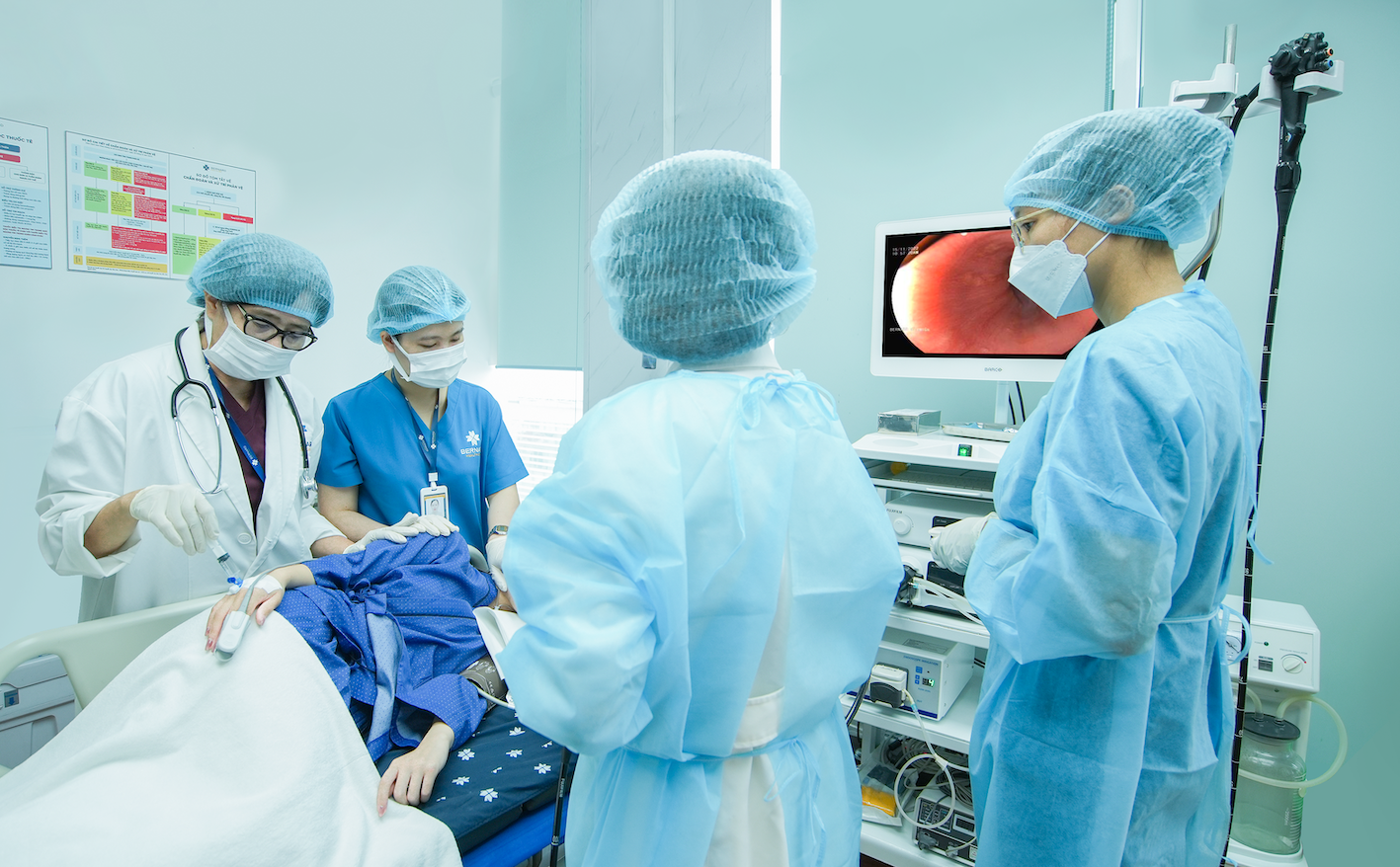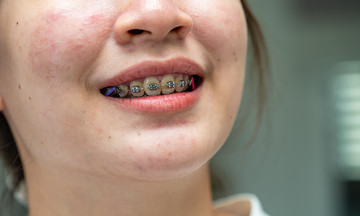A study conducted by the Bernard International Comprehensive Medical System in collaboration with Dr. Pham Nguyen Quy, an oncology specialist and researcher at Kyoto Medical University, and colleagues, involved 836 people between 2020 and 2025. The study included 174 GERD patients and 662 healthy individuals. Participants underwent endoscopies, BMI and percentage of body fat (PBF) measurements, and lifestyle surveys. The study, published in late August at the 66th Annual Meeting of the Japan Ningen Dock Society & Preventive Medical Association, garnered international attention.
The research indicates a stronger correlation between PBF and GERD risk than between BMI and GERD risk. While BMI is helpful in identifying mild cases, PBF is superior in predicting severe ones. Combining both measurements increases the accuracy of risk assessment.
The study also confirms the importance of lifestyle. Consuming red meat, salty foods, alcohol, coffee, cigarettes, carbonated drinks, and lying down immediately after eating increases the risk. Conversely, a diet rich in green vegetables, regular exercise, and a 2-3 hour gap between dinner and bedtime significantly reduce the risk.
On 8/9, Dr. Pham emphasized the study's significance as the first Vietnamese data on the link between PBF and GERD. The results show that BMI alone is insufficient; body fat and lifestyle are the decisive factors. This leads to personalized preventative strategies, enabling patients not only to treat GERD but also to adopt healthier long-term habits, especially with the rising rates of metabolic and digestive diseases.
Doctors have documented several cases illustrating this link. A man born in 1972, 1m61 tall, weighing 68 kg, had a BMI of 26.2 and a PBF of 28.1% (corresponding to class one obesity). Compared to two years prior, both his weight and body fat had increased significantly. He recently began experiencing common GERD symptoms like heartburn, acid reflux, and chest pain.
A 2023 endoscopy only showed mild hyperemic gastritis, with no reflux or H. pylori detected. However, a 2025 endoscopy revealed progressing damage, including a lower esophageal ulcer, grade B GERD with elevated erosive gastritis in the gastric antrum, necessitating monitoring for intestinal metaplasia. Along with prescribed medication, doctors recommended lifestyle changes, weight loss, dietary adjustments, and avoiding lying down after meals.
 |
Endoscopy for a patient. Photo: Tung Linh |
GERD is currently one of the most common digestive diseases globally. In Western countries, the prevalence is 10-20% of the population, while in Asia it's around 5-10% and rapidly increasing. In Vietnam, more patients, especially young people, are facing symptoms like heartburn, reflux, post-meal discomfort, and prolonged insomnia. Untreated, GERD can lead to serious complications such as ulcers, Barrett's esophagus, and even esophageal cancer.
To prevent or alleviate GERD, doctors recommend losing 5-10% of body weight for those who are overweight or obese. Avoid lying down immediately after eating, maintain a 2-3 hour interval between dinner and sleep. Sleep on your left side with an elevated head. Eat moderately, avoid overeating. Eat slowly, chew thoroughly, and have smaller, more frequent meals. Limit red meat, spicy or overly salty foods. Reduce alcohol, coffee, and carbonated drinks. Don't smoke. Maintain a habit of walking or sitting for about 30 minutes after meals. Use prescribed medication as directed.
Le Phuong












